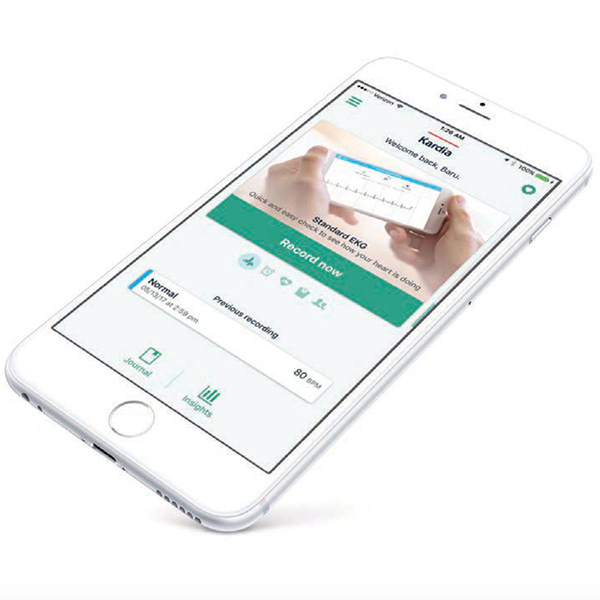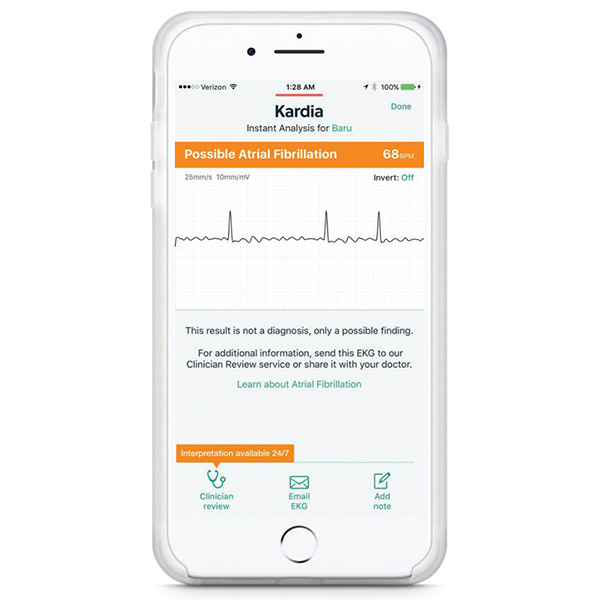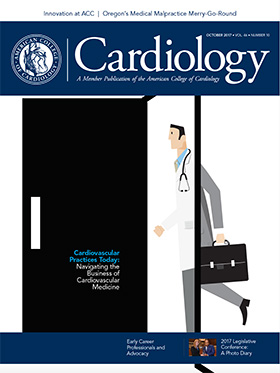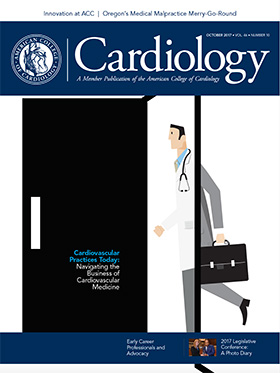Health Tech | AliveCor's Kardia Mobile App
By now most cardiologists have likely heard of or even used an AliveCor smartphone-based electrocardiogram device. I initially became familiar with AliveCor when I was curating the Smartphone Physical for TEDMED’s 2013 conference. They were just starting to generate buzz for their iPhone electrocardiogram (ECG) device that retailed at around $199. In the SEARCH-AF study, the ECG device was shown to be a valuable tool to screen a population of elderly people for atrial fibrillation when they visited their pharmacy.

Figure 2: Sample Kardia Screen for Instant Analysis

The 50-person company has come a long way in the past four years. The ECG device has been miniaturized from the size of an iPhone case to about the size of a credit card. AliveCor has received U.S. Food and Drug Administration approval for a host of applications and they’re awaiting approval for their upcoming Apple Watch ECG. In March of this year they raised $30 million from the medical device maker, Omron Healthcare, with participation from Mayo Clinic Ventures. The purpose of this latest round of investment is to hire more engineers, especially those with experience in artificial intelligence to further improve the sophistication of the decision-support within the Kardia platform.
I corresponded recently with AliveCor founder and chief medical officer, David Albert, MD, who was at the ESC Congress in Barcelona where the company had six presentations and a simultaneous publication in Circulation. Albert shared that they have well over 100,000 devices in use that generate more than 30,000 rhythm strips every day, making them “one of the largest ambulatory monitoring companies in the world.” In general, the company aims to differentiate itself from consumer-facing health and fitness devices such as Fitbit by emphasizing the clinical-grade quality of their devices and continuously validating their work through peer-reviewed publications and presentations (all summarized at alivecor.com/research).
I recently updated the Kardia mobile app on my phone and was impressed with the user experience enhancements, as well as the more than 1,200 reviews (average of 4.8 out of 5 stars) by users of the tool, who express appreciation for the peace of mind and control the device gives them. For example, one August 2017 reviewer writes, “My heart had been pounding off and on monthly for over a decade. Every time I saw the doctor I was told ‘you’re fine.’ If it wasn’t for Kardia, I would not have known I had paroxysmal atrial fibrillation. I sent my doctor the ECG and his office called me to see him the next day.”
Available on both iOS and Android, the Kardia mobile app enables users to easily capture and save 30-second rhythm strips, which they can annotate, email or submit for 24/7 clinician review (Figure 1). There’s also an instant analysis feature that can provide an initial finding, e.g., “possible atrial fibrillation,” though it makes clear that the result is not a diagnosis but rather a possible finding (Figure 2).
Overall, this is one of the clearest examples of how patient-generated health data can be used to empower and engage patients, as well as identify valid health risks and conditions.
The app also syncs with Apple HealthKit and enables users to track their blood pressure and weight in the same app – ultimately these data may be used together with patient demographic and other health record information to develop more sophisticated machine-learning models to spot potential cardiac problems (enter the Mayo Clinic partnership and investment).
In terms of pricing, the Kardia Mobile device is $99 and the basic version of the app allows for rhythm strip recording, automated analysis of findings and sending the latest strip via email. The premium service costs $9.99 a month, or $99 a year, and includes unlimited history and storage of ECG recordings, a monthly ECG summary report to share with a physician, and the ability to track blood pressure, activity and weight.
I’ve been following AliveCor’s trajectory for the past few years and look forward to what the next few will bring, especially as they integrate more clinical data into their algorithms. Overall, this is one of the clearest examples of how patient-generated health data can be used to empower and engage patients, as well as identify valid health risks and conditions.
Tweet this article: Tweet
Shiv Gaglani, MBA, is the co-founder and CEO of Osmosis.org and a medical student at Johns Hopkins School of Medicine.
 |
|
| Click the cover image above to read the latest issue of Cardiology in e-pub format or click here to read it on the web! | |
Keywords: ACC Publications, Cardiology Magazine, Aged, Atrial Fibrillation, Methyltestosterone, Mobile Applications, Research Report, Electronic Mail, Investments, Blood Pressure, United States Food and Drug Administration, Electrocardiography, Artificial Intelligence, Heart, Algorithms, Monitoring, Ambulatory, Demography
< Back to Listings

